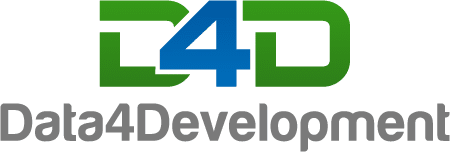Many assume that developing a dashboard is centered around digital technology. However, we as Data4Development believe technology is just one piece of the puzzle. In creating a dashboard, we are convinced that we need people and the processes as much as we need technology. Only when people, processes and technology are truly aligned, can technology really work and data starts to speak.
Green Business Club: The Sustainability Impact Dashboard
Yet what does our People, Process, Technology (PPT) approach mean in practice? The Sustainability Impact Dashboard we have recently developed for the Green Business Club (GBC) is a great case to illustrate how PPT translates to reality.
The Assignment
The Green Business Club Nederland is a network of local Green Business Clubs around the Netherlands that connects and supports businesses, municipalities, knowledge institutes and other stakeholders to create and enhance sustainable business operations.
People
We believe that technology works best if it serves a clear user group and purpose. As such, the most important question for us in developing a dashboard is simple and straightforward: For whom and for what purpose? Applying this to the Sustainability Impact Dashboard, we focused on designing a dashboard which allows the national and local GBCs to to effectively monitor progress on sustainability. Instead of taking the data source as the starting point, we have taken the main objective as key reference in designing the dashboard. The result: A concrete set of meaningful KPIs to measure and monitor their impact.
Processes
Rather than working towards delivering a dashboard as an end product, we perceive a dashboard as an ongoing process. We believe a dashboard never reaches its final state. First, the data source is dynamic. This means that we have applied a multi-annual perspective in designing both the dashboard as well as the data source. Second, a dashboard is dynamic. By means of interaction, users can zoom in or make cross sectional comparisons. In short, a dashboard is only relevant if it is used. Based on this conviction, we have determined the user experience principles.
Technology
For us, digital technology, is a facilitating tool to convert data to information and ultimately wisdom. “What gets measured, gets managed”: Wisdom is essential in making the right decisions and steering towards the social impact envisioned. The Sustainability Impact Dashboard has created an opportunity for the GBC to translate data into meaningful insights about the progress towards sustainability. Curious to find out more or are you ready to turn data into wisdom? The dashboard will soon be online at greenbusinessclub.nl/landelijk/. Interested in our dashboarding services? We as D4D are ready to help! Check out our dashboarding product page.
